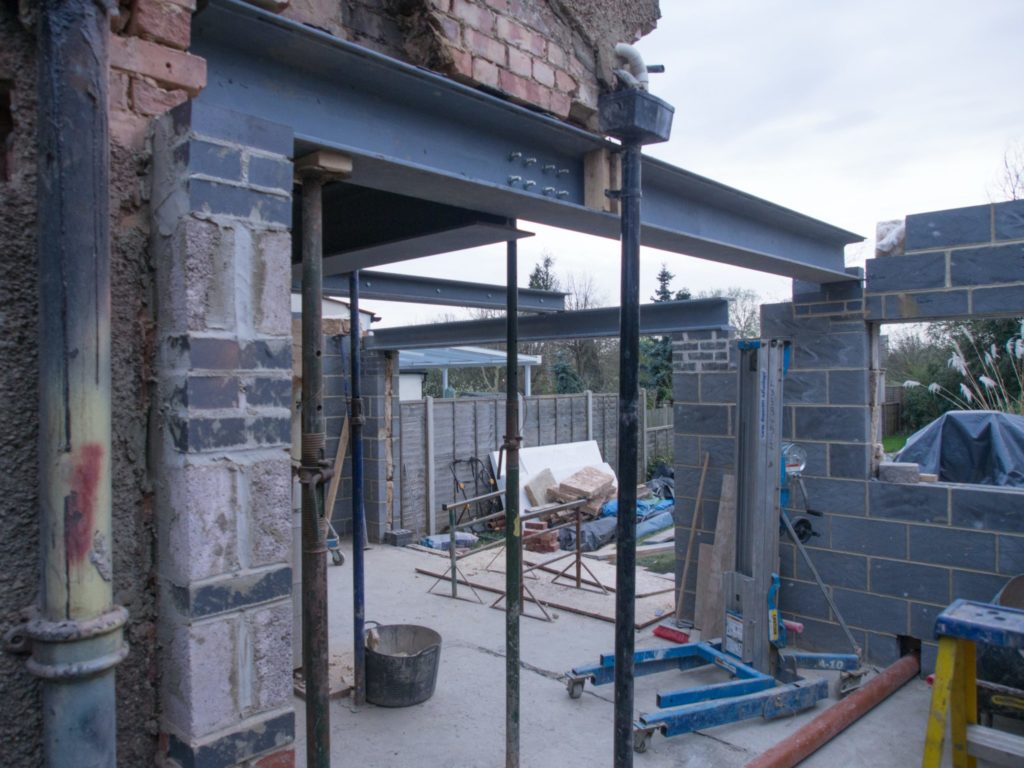Whether you’re a property investor or simply a residential homeowner, one of the quickest and easiest ways to add value to your property.
Extension can be something of a broad or vague term, and could apply to extending your kitchen, for example, or to converting your loft into an extra floor. It could also mean building out into your garden or on to existing features on the property.
As the property market is booming, we’ve noticed that we’re receiving more enquiries than ever about how to finance a house extension, and so we’ve decided to put together a short guide to let you know what options you may have for funding this type of project.
Ultimately, building a house extension is rarely cheap, especially if you want it done well. There are the caveats, of course, that you should always go through a reputable tradesman when looking to fund these types of projects and not try to do things on the cheap, as it’s often found that this can cost more in the long run and even reduce the value of your property.
When an extension is done well, however, and is well researched and adds to the property, there are few things you can do that have such an immediate impact and are well worth the investment, even if the initial outlay can be pricey.
Here are some ways to consider if you’re looking to finance a house extension.
5 Best way to pay for a house extension
The best way for you to finance your extension will depend on your circumstances, the cost of the project, your experience and whether you’re a property investor or a residential property owner.
We deal with clients in all of these situations and more, so we know that advice can be key, but here are five finance methods to consider.
Re-mortgage your property
 One option is to release equity that you have in your property over the period of time that you’ve owned it, or if your property has increased in value.
One option is to release equity that you have in your property over the period of time that you’ve owned it, or if your property has increased in value.
It’s one of the most popular ways for clients to raise capital to fund these projects and can be particularly attractive if your property has increased in value over the course of your mortgage.
A downside can be that it increases your monthly mortgage payments and so can stretch your household budget. That being said, mortgage rates are at an all-time low, and so if you can agree a low interest re-mortgage on a fixed rate either as a residential customer or a Buy-To-Let customer.
The process for remortgaging will differ depending on whether you’re a residential customer or landlord and it may be a little more difficult if you’re a landlord, but it’s something we can help with.
Take out an unsecured loan
This is a similar option to using a credit card, and it carries similar risks and downsides. One significant difference, however, is that interest rates on unsecured loans tend to be much lower interest rates than using credit cards.
Further to that, the interest and payments are fixed, meaning that you know what you’ll be paying each month when funding the extension to your house. The fact it’s unsecured is also attractive as, should the worst happen, and you’re not able to make the repayments the lender isn’t able to repossess your house, which isn’t the case with a re-mortgage.
A second mortgage
A second mortgage, or a ‘second charge’ mortgage is sometimes known as a secured loan too, and it essentially means that you’re raising financing to fund your extension against your property.
Your main mortgage provider are the financial provider that have ‘first charge’ over your property, so if you fail to make the payments on your mortgage they have the right to the asset first, but second charge providers will lend you money on the understanding they then have second priority if the worst were to happen.
These are a little more difficult to negotiate and the interest can be higher, but it can be a good solution if you’re looking to extend your house.
Use your savings
This may be something you’ve already considered if you’ve got enough in savings to cover the cost of the extension project, however, you may be reticent to part with so much money out of your savings rather than taking our financing.
It’s true that paying cash out of your savings can feel like a risk, but don’t forget how much you’re saving in the long run by not paying interest on the capital you’re investing into the house. And that’s how it should ultimately be viewed – as an investment.
By investing into your house, you’re then increasing the value and how easy it is to sell on the open market.
Use a credit card
This very much depends on your credit card limit and the interest you pay, but if you’re looking at funding a smaller scale project such as a kitchen extension and you have enough on your credit card to cover the amount, then it may be something worth considering.
What we would say is that this will only suit in fairly specific circumstances. What to be cautious of is using up all your available credit as most creditors and credit reference agencies view credit utilisation of more than 50% as a bad sign that you’re not managing your credit well.
Further to that, if your interest rate is high it could become very expensive and negate the benefits of increasing the property value.
What if it’s property investment?
As a property investor you can still raise finance for your property, it just be a slightly different process as a landlord or investor. As more of a business customer, financing providers will usually ask for a bit more detail about your plan, how long it will take and how much you think it will increase the value of the property by.
They’ll also usually look to see what your ‘exit plan’ is, or how you aim to repay the loan, as well as some asking for a business plan to show that you know what you’re doing. Here are some popular options for property investors.
Bridging loan
A residential bridging loan is short term option for raising quick capital and is used for a variety of reasons in property development and refurbishment.
 If, for example, you’re looking to fund an extension on a house that you’ve just bought before re-mortgaging or selling, then a bridging loan is an excellent choice as it’s flexible and relatively straight forward to organise.
If, for example, you’re looking to fund an extension on a house that you’ve just bought before re-mortgaging or selling, then a bridging loan is an excellent choice as it’s flexible and relatively straight forward to organise.
If it’s a shorter term project that you can repay upon completion, then this makes good sense.
Heavy refurbishment
Many of our clients take out this type of property finance when they’re looking to fund the purchase of a bargain property that needs a lot of structural work doing to it or needs a lot of refurbishment.
Again, it’s intended as a shorter term arrangement, and many of our clients use these types of property loans to refurbish a property before they then arrange a mortgage or sell the property on.
Many mortgage providers won’t agree a Buy-To-Let mortgage or longer term lending if a property isn’t in a good state of repair, and these circumstances many of our clients approach us to arrange shorter term financial arrangements to complete the work.
Second charge or second mortgage
As described above, a second mortgage can be a great way to fund extensions if you’re looking to raise capital, but your main mortgage provider won’t consider a re-mortgage.
A ‘second charge’ mortgage simply means that you’re using your property as security against the loan, but the provider gets second priority if the worst happens.
Again, these can be tricky to arrange and there are some circumstances you may not be considered for, however, our team of brokers have decades of experience in the market and will be able to advise you of the best route and what you’re likely to qualify for.
Speak to our team about how to finance a house extension
Our team of brokers have years of experience dealing with extensions and funding them. They know our panel of lenders inside our and what you’ll need to be able to qualify for our range of products.
They’re all friendly and available to field your questions, no matter what you want to know, so why not give them a call today to discuss what you’re looking for?

